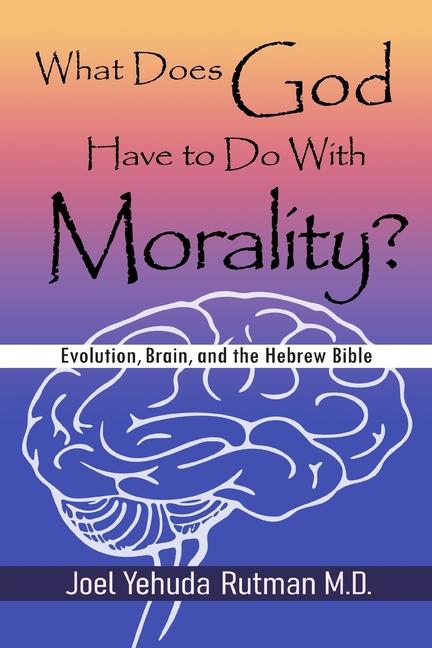Description
Most people would agree that morality, or moral behavior, is terribly important. But what is it exactly, and where does it come from? Have we inherited our moral code as a consequence of a beneficial evolutionary adaptation, or does it come from God and the Bible? This is the question neurologist Joel Yehudah Rutman attempts to resolve in Does God Have Anything to Do with Morality? Evolution, Brain and the Hebrew Bible.
In this work, the contribution of the human brain to the moral behavior of our species is explained. Behavioral traits including empathy, fairness, cooperation, emotion, and reason are presented in the context of evolved morality. Dr. Rutman then analyzes key events in the Hebrew Bible in the light of our evolved moral behavior and explains how the quest for justice and righteousness naturally results.
Complex issues that arise from this analysis of natural morality are also explored: free will, incest, the nature of good and evil, the role of animal sacrifice, the interaction of culture with genetics, and the dangers of living solely by a natural morality that disregards biblical ideas of right and wrong.
Can we accept naturalism without losing faith and trust in divine help? And how does a brain-based understanding of ourselves affect our understanding of the Hebrew Bible and its codes of moral behavior? In the past, scientists and philosophers stressed the separation of morality, evolution and brain. Here, Dr. Rutman addresses the challenges of leading a moral life while coming to terms with our biological and evolutionary past and attempts their synthesis.
In this work, the contribution of the human brain to the moral behavior of our species is explained. Behavioral traits including empathy, fairness, cooperation, emotion, and reason are presented in the context of evolved morality. Dr. Rutman then analyzes key events in the Hebrew Bible in the light of our evolved moral behavior and explains how the quest for justice and righteousness naturally results.
Complex issues that arise from this analysis of natural morality are also explored: free will, incest, the nature of good and evil, the role of animal sacrifice, the interaction of culture with genetics, and the dangers of living solely by a natural morality that disregards biblical ideas of right and wrong.
Can we accept naturalism without losing faith and trust in divine help? And how does a brain-based understanding of ourselves affect our understanding of the Hebrew Bible and its codes of moral behavior? In the past, scientists and philosophers stressed the separation of morality, evolution and brain. Here, Dr. Rutman addresses the challenges of leading a moral life while coming to terms with our biological and evolutionary past and attempts their synthesis.
Last updated on
Product Details
- Jul 1, 2025 Pub Date:
- 9798282722482 ISBN-10:
- 9798282722482 ISBN-13:
- English Language




